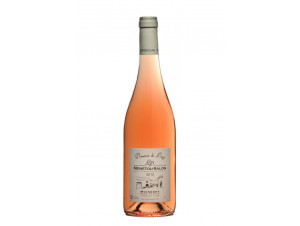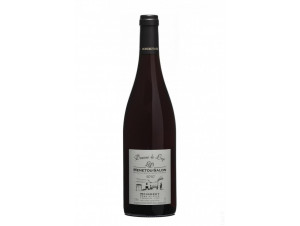You have no items in your shopping cart.
Wine Menetou-Salon
Nestled in the heart of the Loire vineyards, north of the town of Bourges, the Menetou-Salon appellation is one of the most prestigious appellations in the Loire Valley. The red, rosé and white wines produced in this AOC are known and consumed throughout the world. Read more on Menetou-Salon
-
Top Selling
-
Top Selling-22%
-
Top Selling-21%
- -16%
Appellation Menetou-Salon
Menetou-Salon, an appellation that sees centuries go by
The Menetou-Salon appellation is part of a wine-growing region where the cultivation of vines really took off during the Middle Ages, from the year 1000 onwards, as can be seen from the numerous writings that have been found and which relate to the châtellenie and the Lords of Menetou-Salon. The town was indeed a real metropolis at that time, the proximity of the Loire allowing the transport of wines and cereals produced in the region.
It was then under Charles VII, in the 1400s, that Jacques Cœur, who was passionate about thewines of Menetou-Salon, became Lord of the region, and actively participated in the development of the vine culture. Then, during the Renaissance, François 1er had the Château de Chambord built and then settled in, which also helped develop the economy, and therefore winegrowing in the region. Menetou-Salon is first and foremost a royal wine, which was enjoyed by the highest circles for several centuries.
The wine prospered and gained fame, unfortunately at the end of the 19th century, phylloxera severely ravaged the vineyard. But the producers are similar and help each other from the middle of the 20th century, and give back to the Menetou-Salon appellation its letters of nobility, which it continues to wear today.
The Menetou-Salon AOC is located in the Cher department, near the town of Bourges. The appellation covers the towns of Aubinges, Humbligny, Menetou-Salon, Morogues, Parassy, Pigny, Quantilly, Saint-Céols, Soulangis and Vignoux-sous-les-Aix, covering 590 hectares in total. The AOC was registered in 1959.
The Menetou-Salon AOC is characterised by limestone soils serving Pinot Noir and Sauvignon Banc
The soils of the Menetou-Salon appellation are composed of limestone, clay, Kimmeridgian marl (fossilised shells) and sandstone. The grape varieties that grow in the appellation are Pinot Noir for the red and rosé Menetou-Salon, and Sauvignon Blanc for the white Menetou-Salon.
Pinot Noir is a delicate grape variety, quite fragile and not very resistant to disease. Its cultivation is therefore particularly delicate. The wines are quite powerful, rich, mostly for ageing, but not very tannic. Generally the vinification is done traditionally, with or without cold pre-fermentation maceration.
After maceration, once the alcoholic fermentation has taken place, during which pumping over and punching down are carried out, the wine is racked and then put into vats or barrels for ageing. The maturation must then take place for at least 6 months, and at most 24 months. The more time the wine spends in casks, the longer it will age.
The Sauvignon Blanc is vinified in the same way, without maceration. It can also be aged in barrels or vats. This will result in very different styles of wine in time.
Rosés can be saignée (maceration is started as in red wine, then a part of the vat is selected after a few hours of maceration) or pressurage (the Pinot Noir is cold pressed with the skins and the juice is recovered, slightly coloured). They are vinified in the same way as the reds and rosés, with only very rare maturing in barrels.
The AOC includes a total of 101 producers of Menetou-Salon, including 89 winegrowers. 69 of them vinify their own wines, the others are part of cooperatives, or sell their grapes to other winegrowers or merchants. There are therefore 56 estates and a dozen trading houses that produce Menetou-Salon.
What are the characteristics of Menetou-Salon?
Menetou-Salon reds
The red wines are ruby coloured, very bright, with beautiful bright red reflections. The dominant aromas of these wines are of ripe fruit, cherry, plum. In the mouth, the tannins are almost non-existent, the structure is very supple. With age, the wines can arrive at aromas of violet and cherry.Menetou-Salon whites
. The white wines are very pale, quite bright. The main aromas found in the sauvignons of this appellation are citrus notes, mainly grapefruit, orange and lemon. Some fairly herbaceous notes are also present, such as mint or acacia. On the palate, the aromas sensed on the nose intensify, and come close to orange blossom, quince, apple, honey and some spices.Menetou-Salon rosés
Rosés made from Pinot Noir are very pale and have subtle grey tints, the aromas that emerge on the nose are quite fresh, light. The wines will bring you aromas of white fruits, such as peach.What to eat with a Menetou-Salon?
Menetou-Salon reds
Red wines go very well with the finest game, such as partridge or pheasant. Poultry with cream and mushrooms also give very nice matches with red Menetou-Salon.White Menetou-Salon
White wines will go well with fish in sauce, especially with butter. Asparagus is also very well enhanced by these wines.Menetou-Salon rosés
Rosés go very well with grilled meats, salads or other spring and summer aperitifs and dishes.2 domains to discover in the Menetou-Salon appellation
Domaine Eric Louis - Les Celliers De La Pauline
This property established in the heart of the vineyard of Sancerre offers wines of very beautiful quality, elaborated in the respect of the tradition. Today, Eric Louis is at the head of this family property, which has existed since 1860. This Menetou-Salon white is very fruity and fresh, with a nice roundness in the mouth.Philippe Gilbert Estate - Les Renardières
Philippe Gilbert works his 29 hectares of vines biodynamically, which gives lively, acidic, very fruity wines. The tannins are very melted and bring a generous texture in the mouth. A very nice wine to discover or rediscover the appellation.
Vallée de la Loire appellations


































 TWIL - Achat de Vin
TWIL - Achat de Vin


